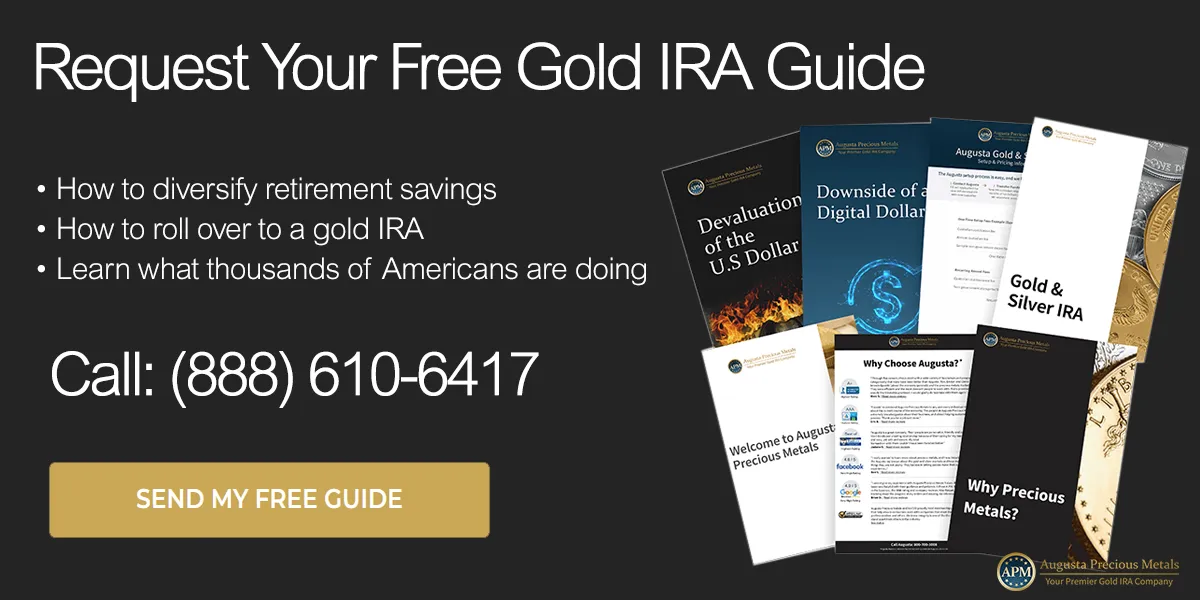Are you considering diversifying your retirement savings with a Gold IRA? That’s a prudent decision! Gold IRAs can provide stability against volatility in the stock market.
However, there are important regulations you need to understand to avoid penalties from the IRS.
In this article, we'll explore critical regulatory considerations to help you maximize your Gold IRA while staying compliant.
IRS Rules for Gold IRAs
The IRS treats Gold IRAs similarly to other Individual Retirement Accounts (IRAs). This means contributions and distributions follow the same rules and limits as traditional IRAs. However, there are a few additional things to keep in mind:
- You cannot directly store the physical gold. It must be stored by an IRS-approved custodian. More on this later.
- The gold must meet certain IRS fineness standards. Only specific gold, silver, platinum, and palladium coins and bars are allowed.
- There are strict rules around gold transactions within the IRA. For example, you can't buy gold from yourself or certain family members.
Following IRS guidelines will prevent unnecessary taxes or penalties on your Gold IRA. Work closely with a reputable Gold IRA company to handle transactions by the book.
Gold IRA Tax Implications
What are the tax implications of a Gold IRA? While the rules are similar to traditional IRAs, here are some key points:
- Contributions to a Gold IRA may be tax-deductible, depending on your income and participation in other retirement plans.
- Gold IRAs grow tax-deferred. You won't pay taxes on any gains until you take distributions.
- Distributions are taxed as ordinary income based on your income tax rate at the time.
- Withdrawals before age 59 ½ will face a 10% early withdrawal penalty, with some exceptions.
- Required Minimum Distributions (RMDs) start at age 73 (as of 2024, due to the SECURE 2.0 Act), with a 50% penalty on under-distributions.
- There are no special capital gains tax rates for Gold IRA investments.
Work with your tax advisor to determine the optimal way to integrate a Gold IRA into your overall retirement savings and distribution strategy.
Gold IRA Metals - IRS Approved Coins and Bars
Only certain gold, silver, platinum, and palladium products are approved for Gold IRAs by the IRS:
Gold
- American Gold Eagle Coins
- American Gold Buffalo Coins
- Canadian Gold Maple Leaf Coins
- Australian Gold Kangaroo Coins
- Gold bars and rounds, as long as they are at least .995 fine gold
Silver
- American Silver Eagle Coins
- Canadian Silver Maple Leaf Coins
- Australian Silver Kookaburra Coins
- Austrian Silver Philharmonic Coins
- Silver bars and rounds, at least .999 fine silver
Platinum
- American Platinum Eagle Coins
- Platinum bars and rounds, at least .9995 pure platinum
Palladium
- Canadian Palladium Maple Leaf Coins
- Palladium bars and rounds, at least .9995 pure palladium
Funding your Gold IRA only with IRS-approved coins and bars is critical. Some Gold IRA companies claim you can invest in rare coins or collectibles. However, the IRS prohibits these kinds of unconventional assets. Sticking with straightforward bullion keeps your Gold IRA fully compliant.
Home Storage Rules for Gold IRAs
What about storing some of your Gold IRA at home in your own personal safe? While this may seem convenient, it is prohibited by the IRS. All Gold IRA assets must be held by an authorized custodian in a specialized depository.
Why can't you store Gold IRA metals at home?
The IRS needs to ensure assets aren't used improperly before retirement. Self-directed accounts also require an independent third party to objectively value holdings. Some key home storage rules include:
- All Gold IRA metals must be segregated in a secure vault at an IRS-approved storage facility.
- You are not allowed physical access to metals in your Gold IRA. No taking coins home to "show friends."
- Proper insurance and security protocols must be in place per IRS guidelines.
- Regular independent audits are required to verify holdings.
- Transfers or sales of Gold IRA metals must have documentation for IRS reporting.
While home storage may sound more straightforward, the truth is top Gold IRA custodians provide much higher levels of security, insurance, and accountability. This protects your retirement investments and keeps your account compliant.
Choosing a Reputable Gold IRA Company
By now, it should be clear that there are stringent IRS rules governing Gold IRAs. Working with an experienced Gold IRA company is critical to avoid missteps. But not all Gold IRA firms are equal. Here are some tips for choosing a reputable Gold IRA custodian:
- Look for a long track record of Gold IRA specialization. An experienced custodian is fluent in IRS regulations.
- Make sure the company uses only IRS-approved metals from accredited producers like the US Mint.
- The Gold IRA firm should have state-of-the-art vaulting facilities that meet IRS security protocols.
- There should be no pressure sales tactics or promises of getting around IRS rules.
- Transparent, competitive pricing with no hidden fees is ideal. Avoid inflated commissions.
- Excellent customer service makes a difference if questions ever arise with your account.
Take your time researching multiple Gold IRA companies before selecting a custodian you can trust. It's your retirement at stake.
Beware of Gold IRA Scams
Unfortunately, some unscrupulous companies prey on unsuspecting investors. Be on the lookout for these Gold IRA scams:
- "Home Storage IRAs" – No Gold IRA allows you to store metals at home.
- "Rare Coin IRAs" – The IRS only allows bullion (no rare collectibles).
- "Gold Scheme IRAs" – Requires opening a shell business to buy gold, then transfer to the IRA.
- Phony mining stocks sold as Gold IRAs. Again, the IRS only allows real gold/silver/platinum/palladium bullion.
- High-pressure sales tactics, such as warnings of a coming "Gold confiscation."
- Trail commissions to overseas shell companies – You should only pay domestic custodian/dealer fees.
If something sounds too good to be true, it probably is. Do your due diligence and rely on a reputable Gold IRA company to navigate IRS regulations.
In Summary
Gold IRAs can provide a smart way to diversify your retirement savings. However, following IRS rules to keep your account fully compliant is critical.
Choosing an experienced custodian will help you navigate the regulatory intricacies. With prudence and care, a Gold IRA could become an integral part of a lasting retirement strategy.


